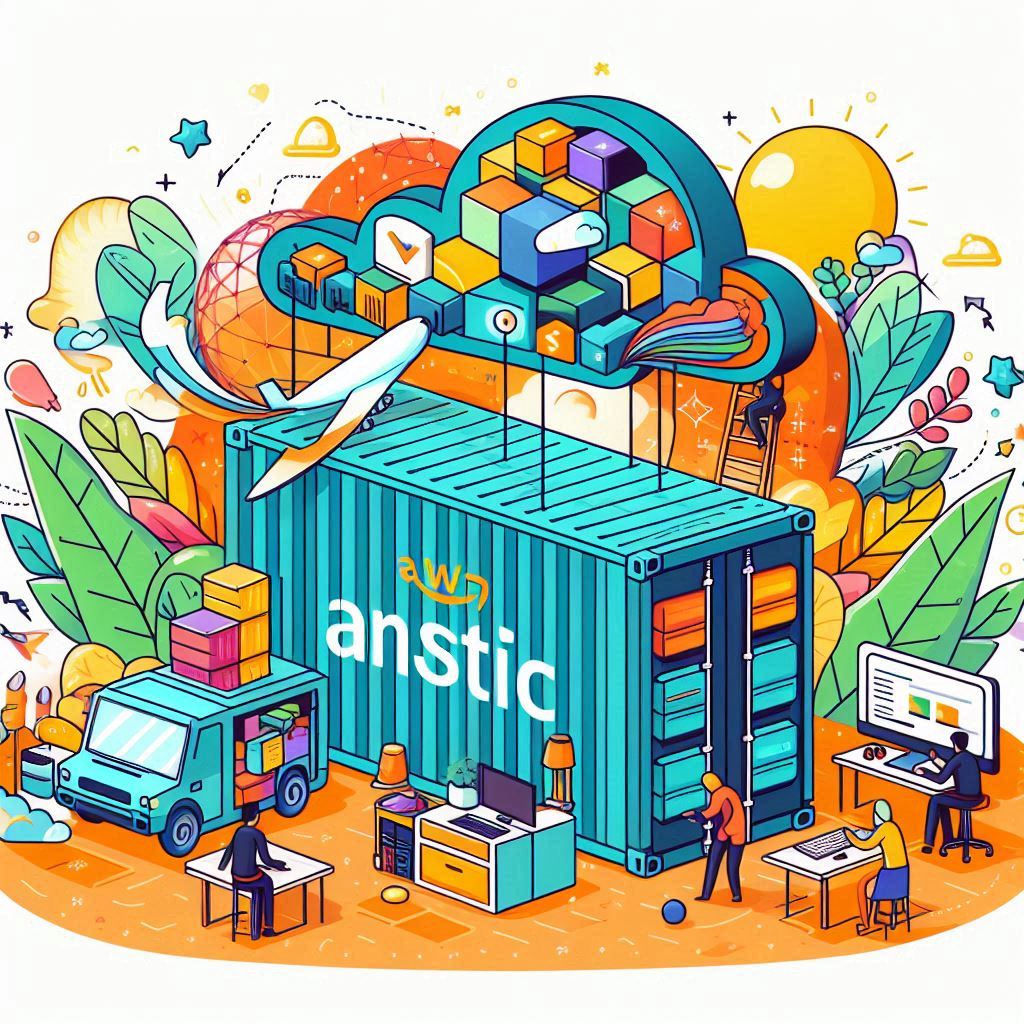Elastic Container Service (ECS) Architecture
 Linet Kendi
Linet KendiTable of contents

The Restaurant Analogy
Imagine you own a bustling restaurant, "Cloud Bistro," that operates multiple food trucks across the city. To manage the restaurant and food trucks efficiently, you have a sophisticated system in place. This system is akin to AWS ECS (Elastic Container Service) architecture.
Restaurant Owner (Customer): You are the customer who needs a reliable way to serve food (deploy applications) to your customers.
Restaurant Manager (ECS): You hire a restaurant manager, ECS, who is responsible for managing all your food trucks (containers).
Food Trucks (Containers): Each food truck is like a container, equipped to serve a specific type of cuisine (application) efficiently. These containers can be started, stopped, or moved as needed.
Chefs (Tasks): Inside each food truck, chefs (tasks) prepare the food. Each chef is assigned a specific recipe (task definition) to follow. A task definition specifies the necessary details like the ingredients (container image), cooking equipment (CPU/memory requirements), and environment variables.
Truck Fleet Manager (Cluster): You have a fleet manager who oversees all the food trucks (an ECS cluster). This manager ensures that the trucks are spread across the city in various strategic locations (availability zones).
Waiters (Services): Waiters (services) in the restaurant ensure that customers always get their food quickly and reliably. A service maintains the desired number of running tasks (chefs) and replaces any that fail.
Delivery Routes (Scheduling Strategies): The fleet manager decides the best routes for the food trucks (scheduling strategies). This can be a route that distributes trucks evenly across the city (spread), a route that sends more trucks to busier areas (binpack), or routes that follow custom rules.
Sous Chefs (Container Agents): Sous chefs (ECS container agents) are present in each food truck. They communicate with the restaurant manager (ECS), providing updates on the status of the chefs (tasks) and ensuring the recipes (tasks) are followed correctly.
Pantry (ECR): You have a pantry (ECR - Elastic Container Registry) where all the recipes (container images) are stored. The chefs (tasks) retrieve their recipes from this pantry before they start cooking.
Health Inspector (Health Checks): A health inspector periodically checks the quality of food (health checks) to ensure everything is up to the restaurant's standards. If something is wrong, the manager (ECS) is notified, and immediate action is taken to resolve the issue.
Through this Analogy, it illustrate how ECS architecture manages and orchestrates containerized applications, ensuring efficiency, scalability, and reliability, just as a well-managed restaurant ensures great service and quality food.
If you found this article helpful, please leave feedback.
Sources
Subscribe to my newsletter
Read articles from Linet Kendi directly inside your inbox. Subscribe to the newsletter, and don't miss out.
Written by

Linet Kendi
Linet Kendi
Cloud and Cyber Security enthusiast. I love collaborating on tech projects. Outside tech, I love hiking and swimming.